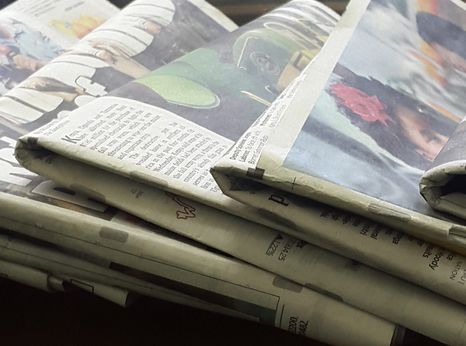Journalist forcibly disappeared

The situation is very concerning in the northern province of Cabo Delgado. Since October 2017, the northern districts of Cabo Delgado province have experienced armed attacks by individuals believed to be members of an extremist group, popularly known as “Al-Shabaab”. The attackers have invaded villages, set houses on fire, hacked villagers to death with machetes and looted their food. Although the government increased its military presence in the region, its response was inadequate. Civilians suspected of being extremists and journalists reporting on the attacks were subjected to intimidation, arbitrary arrest and detention, torture and other ill-treatment, and even summary executions.
The ongoing violent attacks in the northern districts of Cabo Delgado which have so far claimed hundreds of lives not only constitute one of the most heinous violations of human rights but also create an environment for more human rights violations and abuses. The unknown perpetrators, whose political demands remain undeclared, have been attacking rural villages, beheading residents, looting food and burning houses. Amnesty International has received disturbing reports of human rights abuses by those charged with protecting communities – the police and the army.
On 23 January 2019, a South African businessman Andre Hanekom died in mysterious circumstances under police custody after being shot in the arm and stomach. He had been abducted by four masked men armed with AK’47 rifles in Palma district on 1 August 2018. A series of events between security forces, justice and health services culminated in his death. The Mozambican authorities have not conducted any investigations into the torture allegations and his death.
Amnesty International is also aware that the government prohibits the media from reporting the current political and social conditions in these districts, which violates the people’s right of access to information; that journalists and researchers have been harassed, intimidated, arrested and detained for reporting about the conflict in Cabo Delgado, in violation of the right to freedom of expression and media freedom.
On 17 December 2018, investigative journalist Estacio Valoi Amnesty International researcher David Matsinhe, and their driver were arbitrarily arrested by military forces while conducting research on communities attacked by an extremist group popularly known as “Al-Shabaab”. The military forces arrested them at a roadblock in Mocímboa da Praia district and detained them incommunicado in secret detention centre. They were released on 19 December without charges, however their equipment, such as telephones, computers, photographic cameras, and the respective accessories remain with the army.
Amade Abubacar, a community radio journalist, was arbitrarily arrested on 5 January 2019 by police officers in Macomia district while interviewing internally displaced civilians who fled their homes due to the intensification of violent attacks in northern Cabo Delgado. On the same day, he was transferred from police custody to military detention in Mueda district, where he was held incommunicado for 12 days and allegedly subjected to torture and other ill treatment. Amade Abubacar was held in pre-trial detention for more than 90 days before being formally charged. During his pre-trial detention at the Mieze prison in Pemba city, the prison authorities denied him family visits.
On 18 February 2019, security forces arrested and detained incommunicado Germano Adriano, Amade Abubacar’s colleague, in Mieze Jail, 20km from Pemba town. On 23 April, both Amade and Germano were granted provisional release and are currently facing charges of crimes of “inciting public disobedience” through “electronic means” and “injury against public officials.”
Amnesty International is also aware that, after the arrest of Germano Adriano, the governor of Cabo Delgado threatened journalists, telling them in a press conference in Pemba that there was much more happening in the province than violent extremism, and warned them against of dire consequences if they continued to report about violent extremism.